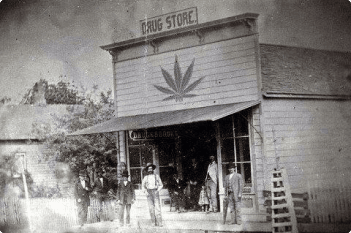What is the State of Marijuana in Connecticut?
Medical marijuana and recreational marijuana are legal in Connecticut. Medical marijuana was legalized in 2012 when HB 5389 was enacted. Recreational marijuana became legal in the state when SB 1201 was passed in 2021.
HB 5389 made medical marijuana available to Connecticut residents who suffer from certain debilitating health conditions. Qualifying patients must be residents of Connecticut and must not be inmates of any Connecticut prison. In order to obtain medical marijuana certificates, qualifying patients must be receiving treatment for a severe medical condition from a doctor, doctor's assistant, or advanced practice nurse licensed to practice in Connecticut.
SB 1201 permits adults over the age of 21 to possess 1.5 ounces of marijuana. Legal sales of recreational marijuana in Connecticut began in January 2023. Adult residents 21 and over can cultivate three mature and three immature marijuana plants in their homes. Although recreational marijuana has been legalized for adults in Connecticut, it is unlawful to smoke it in a public place. It is also illegal to consume marijuana in the workplace or on the premises of a university, college, or school.
How Has Marijuana Affected the Connecticut Economy?
A Fiscal Accountability Report published by the Connecticut Office of Policy and Management (OPM) in 2022 listed the state's revenue sources from marijuana legalization as deriving from taxes and fees. Connecticut charges a 6.35% state sales tax on cannabis, a 3% municipal tax, and a 10-15% state cannabis tax calculated according to the percentage of THC in a medical marijuana product. The state also obtains fees from medical marijuana producers wanting to expand their licenses and dispensaries wanting to convert their operations into hybrid retail of both medical and recreational marijuana. The OPM report projected that tax revenue from marijuana would amount to $38.4 million in the fiscal year 2023.
In 2020, the Connecticut Center for Economic Analysis (CCEA) at the University of Connecticut published a report on the economic potential of marijuana legalization in the state. The report argued that legalization would remove the need for Connecticut residents to go out of the state to make their marijuana purchases. It also argued that legalizing marijuana would help to curb the illicit trade in marijuana and put tax dollars in government coffers.
The CCEA report projected that the marijuana economy would create between 5,669 and 7,418 jobs in the first year of legalization. It predicted that jobs created in the marijuana economy in Connecticut would rise to between 10,424 and 17,462 by the fifth year of legal recreational marijuana sales.
What is the Marijuana Crime Rate in Connecticut?
A Connecticut Drug Threat Assessment published by the National Drug Intelligence Center in 2002 revealed that only 2.3% of the federal sentences handed down in Connecticut in 2000 were related to marijuana offenses. The national percentage for marijuana-related offenses was 31.2%, indicating that Connecticut had lower figures in comparison. That same assessment revealed that marijuana was the most commonly consumed controlled substance in Connecticut during the period under review.
In 2002, according to Connecticut government statistics based on FBI/UCR figures, there were 5,104 marijuana possession arrests and 587 marijuana sales arrests in the state. Data released by the FBI Uniform Crime Reporting System indicate that there was a gradual decline in marijuana possession offenses in Connecticut during the period 2018-2021. In 2018 there were 2,322 marijuana-related arrests in Connecticut. In 2019, there were 2,082 such cases. By 2020, the figure had gone down to 1,078. In 2021, there were only 557 marijuana-related cases prosecuted in Connecticut. Further declines in Connecticut marijuana arrest rates continued in 2022 and 2023 when the state recorded 218 and 288 cannabis bookings respectively.
What is the History of Connecticut Marijuana?
Senate Bill 1014 (2011)
The path to legalization of marijuana in Connecticut began in 2011 when members of the General Assembly enacted Senate Bill 1014. This law made it only an infraction for a Connecticut resident to possess up to half an ounce of marijuana. An individual found in possession of this quantity of marijuana risked a $150 fine for the first offense and between $200 and $500 for a repeat offense. Marijuana possession had previously been charged as a misdemeanor.
House Bill 5389 (2012)
In 2012, a more wide-reaching piece of legislation came into effect with the passage of HB 5389. This law established a medical marijuana program in Connecticut. The Connecticut Medical Marijuana Program, set up according to the provisions of HB 5389, allows qualifying patients to obtain medical marijuana cards if their doctors determine that other treatment methods have failed. The Connecticut Department of Consumer Protection was charged with overseeing the medical marijuana program, issuing cards to qualifying patients, and licensing dispensaries, cultivators, and processors.
House Bill 5450 (2016)
Under SB 1014 and HB 5389, minors had been denied access to medical marijuana in Connecticut. In 2016, when HB 5450 was passed, minors with any of the qualifying medical conditions became eligible for medical marijuana.
Senate Bill 1201 (2021)
In 2021, the Connecticut General Assembly enacted Senate Bill 1201, which made recreational marijuana use legal in the state.
House Bill 5329 (2022)
In May 2022, House Bill 5329 was enacted by the Connecticut House of Representatives. Under its provisions, municipalities in the state were empowered to levy fines of up to $1,000 on individuals found engaging in indiscriminate cannabis gifting. The practice of cannabis gifting remains legal between family members and friends.

Cultivation of marijuana in the United States, the early 17th century.




